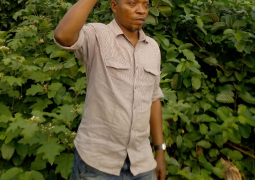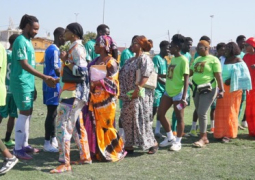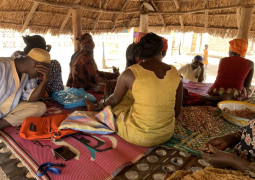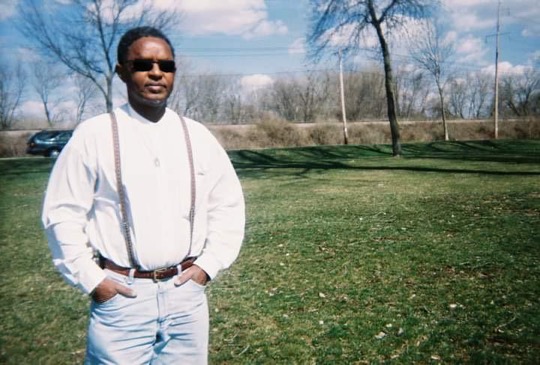
Thus wrote the eighteenth century Scottish novelist, R. M. Ballantyne when the characters in his novel were poised to part and probably never to see again. Closely examined, one can extrapolate that Ballantyne’s poignant remarks are cautionary metaphors of our own mortality; that nothing and absolutely nothing in this life and world, lasts forever. Similar echoes can be found in the words of the English bard, William Shakespeare who puts it more succinctly thus:
Life’s but a walking shadow, a poor player
That struts and frets his hour upon the stage
And then is heard no more. It is a tale
Told by an idiot, full of sound and fury,
Signifying nothing.
{Macbeth: William Shakespeare}
Parting is probably one of the most painful things that we as humans endure especially, the loss of people so attached, so dear, so loving, so precious, so useful, people whose contribution to our country is immeasurable and so was Mathew Kali Jallow (March 3rd, 1950-January 3rd, 2024), loved, adored and admired by many who may have encountered him and his dazzling brilliance.
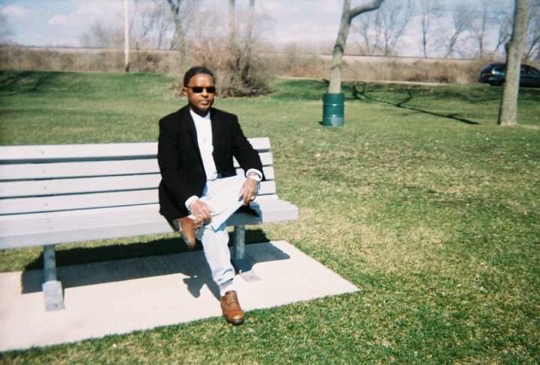
Therefore, on hearing the sudden, shocking death of my very good and kind brother, literary friend, professional colleague and tenacious freedom fighter, Mathew Kali Jallow in Wisconsin last Wednesday, I was devastated. I honestly do not have adequate words to precisely say how Mathew’s death affected me and continues to affect me and my family especially, my youngest daughter, whose childhood memories of Kali are both melancholic and refreshing.
‘‘…my uncle Mathew who spends hours with Daddy talking about books, politics and writers” she reminisces with discernible disbelief. It is one of those lingering feelings of painful loss, nervousness and biting nostalgia over someone so precious that has eluded you for eternity. The news of Mathew’s sudden demise after I successfully secured him his Action Aid pensions through Social Security and Housing Finance Corporation only last November, barely two months before his exit from this world, sounds somewhat surreal. A perplexing feeling that takes you through moments lived together, intellectual conversations spanning some three decades, debates and arguments over topical newspaper articles and acerbic editorials about a kakistocratic regime that reigned for two decades, family gatherings, cultural weddings and what have you! The emotions ceaselessly unravel like a kaleidoscope of human history with its changing shapes and shifting images about and over memorable events and encounters over time. Thank God, it was time well spent, sometimes risky assignments executed in the national interest and good fights for the collective interest of all and not some, primarily for the restoration of democracy and the rule law in our beloved country, The Gambia.
In sum, the association with Kali at The Gambia Echo was based on what I’d call ‘camaraderie of thought’; a tandem of good over evil, a confluence of ideas to dislodge the brutal barbarity of a tyrannical state from the corridors of power that perpetrated and perpetuated injustice and impunity against and over its innocent citizenry. Little wonder, barely months after I launched The Echo with Kali as Associate Editor, it flourished to phenomenal heights and became not only an instant sensation but an equally credible source of information about The Gambia. No sooner had we begun the ferocious editorials to rattle the metastasizing monstrosity, than we started receiving likeminded citizens and non Gambians with shared values and objectives. As I pay tribute to our brother, our courageous colleague in the struggle, I’ll be remised if I fail to mention some of those unsung heroes of the struggle to end impunity: Professor Gilbert Thomson Huffman of blessed memory, Professor Floyd William Hayes III of Johns Hopkins University, Col. Sheriff Samsudeen Sarr, Adama Hawa, Kissy Kissy Mansa, P.M Kanakoteh, Njie Khakatarr, Waato Seeta and Combey M. (a.k.a. J. Parker), formerly of London University. As Associate Editor, Mathew made all of us proud and left us grateful for the subsequent sense of success associated with our work in dismantling tyranny.
Therefore, if ever a man loves his people and country so dear, he was and remains the audacious Mathew Kali Jallow! For Kali, we can say that he was quintessentially of the literati who skillfully maintained a modest life, devoid of the pomp that his pen and writings elicit.
The proud son of Mama Daddeh and the legendary Yero Eggeh Jallow of Sare Gainako, CRR, Mathew Kali was among the first generation children of provincial Fula herdsmen whose parents somewhat acquiesced to send to school to taste the “Pierian Spring” in the words of the English poet, Alexander Pope. Kali was among a few provincial kids across the British colony that were lucky enough to attend school in purely experimental basis as most provincial parents had terrible suspicion over the potential influences and alienation of Western education.
Under the tutelage of legendary educator, John Baldeh, Kali enrolled at Mount Carmel Primary School in his native Sare Gainako village. At barely 12 years, he wrote the Common Entrance Examination securing second place across the nation that took him to St. Augustine’s High School in colonial Bathurst now Banjul, where he would be classmates with famous Serekunda MP and Agriculture minister, the late Omar Amadou Jallow and schoolteacher Henry Jaawo. His schoolmates were author and educator, Phoday Baldeh, the late Cherno Michael Baldeh (a.k.a. Bolong Baldeh) grandson of Fula King, Musa Molloh Baldeh. Apart from OJ, the rest were Mission boys who lived on the school dormitories, a regimented system that Mathew was so critical of and eventually, agitated against in his senior year.
Following high school graduation, Kali ventured into the unthinkable by purchasing a wheelbarrow and began work as a porter at the Banjul Ferry Terminal. In one of our numerous conversations, he recalled, that by some divine providence, his High School Principal, a Roman Catholic priest was crossing the ferry one weekend and spotted him pushing the wheelbarrow and asked Mathew if he too, were crossing? “No Father, am from a very poor family and since I do not know people in Government, I have decided to be a porter for now” much to the consternation of the Irish schoolteacher. The teacher literally seized the wheelbarrow and immediately got him a job as an unqualified teacher posted to St. George’s Secondary School in Basse, Mansajang Kunda, URR. It was from there that his life-long career as both a schoolteacher and later, public intellectual was launched.
From St. George’s, Mathew would write the College Entry Examination matriculating to train as a Qualified Teacher, a career that was prematurely aborted after he launched a successful protest against The Yundum College administration.
Dropping out of college, he went into the teething hospitality industry as a tourist guide a job that brought him progress, eventually traveling to Norway and settling in Sweden for overseas education. He became the first Gambian student to attend Uppsala University. There too, he was expelled for launching a demonstration against the University authorities over allegations of discrimination and unfair treatment of foreign students. In the intervening years, Kali would tour Western European countries, meeting people from all walks of life. He was like a social anthropologist exploring new places and documenting his experiences and encounters both mentally and manually before he returned to The Gambia in the late 1970s with a European wife.
Doggedly determined to overcome challenges of poverty and deprivation and with little money to survive, Kali and wife lived at Banjul’s Albert Market doing menial chores just to eke out a living. Again, by some divine intervention, Kali responded to a job application by the British Charity, Action Aid and passed the selection exams by beating every candidate among them, graduate degree holders. He quickly resettled and seamlessly joined the pool of functionaries contributing significantly and selflessly to The Gambia’s development agenda. Kali’s personal experiences in battling injustice, corruption, discrimination and poverty both home and abroad provided him the requisite energy and preparedness to chart a new paradigm for The Gambia’s grassroots development strategies both at Action Aid and FFHC—Freedom From Hunger Campaign, two institutions he dedicated his life to and served with honour and distinction. It was from the collective experiences and encounters acquired at these institutions over time that adequately prepared him as a leading advocate against poverty culminating in the formation of TANGO—The Association of Non-Governmental Organizations established to among other things, limit conflicting interests among Non-Governmental organizations operating within The Gambia.
Alongside his fights to end corruption, poverty, impunity and injustice, Mathew equally pursued an impressive career in journalism and writing with his pensive mind and sharp pen, he wrote prolifically covering a variety of genres as diverse as his fertile mind that generated great ideas, ideas that would profoundly impact our polity, lives and livelihood of people across the spectrum.
Having made his mark as a serious writer, social commentator and trusted social justice advocate, writing for almost all local newspapers, Mathew eventually immigrated to the United States leaving behind a young military junta that toppled the thirty-year fledgling democratic government of Sir Dawda Kairaba Jawara on July 22, 1994.
Crucially, as he settles in America, it was becoming increasingly obvious that the khaki boys led by a 29-year old army lieutenant, were never to abdicate power democratically and so he joined the struggle to end impunity and return The Gambia to constitutional order, a crusade that would last for two decades. In the end, it was a colossal catastrophe that witnessed the gruesome murder of many, many innocent people, our friend Deyda Hydara assassinated, some suffered abuse, incommunicado detentions, rape and misuse, some disappeared, and some were tortured and paradoxically, many, including the junta’s key lieutenants would flee and join Mathew in his crusade to end the tyranny they enabled with relentless sycophancy.
Significantly, as I conclude this painful tribute about so dear a comrade, a great thinker with a sharp mind and profound intellect, a towering intellectual with a penchant for academic discourse, I am obliged to draw a striking parallel between Kali and the German American scholar, Theodor Wiesengrund Adorno who fled the Nazi genocide against Jews and ended up an exile in America. Adorno was so hateful and apprehensive of exile and its concomitant malaise of alienation and social rejection that he compared it to the old disease, leprosy. Throughout history, lepers have been ostracized and stigmatized by society and the life of lepers in so many ways mirrors those of exiles.
However, out of his deepening frustration captured in his 1951 seminal text: Minima Moralia: Reflections from Damaged Life, Adorno the scholar would devise a prescription, that: “To those who no longer have a homeland, writing becomes home”. So ala Adorno, Mathew who could not also, return home, took to writing as his new found refuge; a coping mechanism for his loss of homeland and the myth of return. When we last spoke on December 20th, 2023, he was so happy that he received his pension and highly optimistic to soon embark on a memorable homecoming to Banjul, which as fate would have it, remains an eternal myth.
In the end, while his dream of returning home never worked, we can celebrate Kali as a very successful ‘sojourner of truth’ who entered America with no diploma and ended with several degrees including a Master’s from the prestigious University of Wisconsin and tons of essays, several books and book chapters to his name. In 2020, he published: The Anthology of an Exiled African Dissident: A Diaspora Movement That Toppled a Government and Exiled a Dictator.
Yet despite all these accomplishments and the high academic rigor he exudes, Mathew exemplified infectious humility as probably one of the simplest persons I ever knew. He was exceptionally kind, always direct, honest with an infectious smile, love for culture and traditional music.
Mathew Kali Jallow or ‘Kali-for-Wali’ as he was affectionately called is survived by twin daughters, Awa and Adama Jallow. So until we meet again my dear brother, the brave Fula Prince who made Sare Gainako and The Gambia proud, m’ballen jam!


